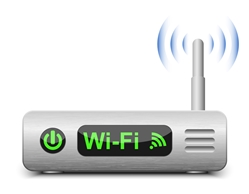Wi-Fi Security an Issue with Travelers, Holiday Shoppers
 Public Wi-Fi hotspots are a favorite place to connect to the Internet for many mobile users because they don’t have to plug in a password for it. But what they might not realize is that these networks make it much easier for viruses and hackers to infect a computer. Two of the most common types of people affected by this are travelers and online shoppers. According to a recent study by PhoCusWright, 84 percent of those on trips or vacations use Wi-Fi without taking necessary precautions, Hospitality Technology reported.
Public Wi-Fi hotspots are a favorite place to connect to the Internet for many mobile users because they don’t have to plug in a password for it. But what they might not realize is that these networks make it much easier for viruses and hackers to infect a computer. Two of the most common types of people affected by this are travelers and online shoppers. According to a recent study by PhoCusWright, 84 percent of those on trips or vacations use Wi-Fi without taking necessary precautions, Hospitality Technology reported.
The survey polled around 2,220 U.S. travelers and found that 82 percent of them are well aware that their personal information is at risk when on public networks, yet the overwhelming majority don’t do anything to secure themselves. Additionally, 51 percent of respondents were worried about a hacker stealing personal information, and another 51 percent were nervous about making online purchases with credit cards.
Still, there appears to be a lack of knowledge or urgency with regard to protecting a PC when on a public Wi-Fi network. Some of the top threats include unknowingly downloading malware that can infect a system and hackers stealing personal information.
Holiday Shoppers Must Be Extra Careful on Public Wi-Fi
Thanks to the holiday season, consumers will be making a lot of online purchases over the next few weeks. However, those that do so over a public connection are leaving themselves at a greater risk to hackers. According to KTAR, securing a computer when shopping over a Wi-Fi hotspot is critical.
While it may be difficult for a hacker or virus to steal information over a secure website, once they have access to a Wi-Fi connection, everything becomes visible to them, including personal data. Therefore, establishing a secure line starts with firewalls and strong passwords that can prevent snoopers from gaining access.
“You have to upgrade the firewalls on your computer and have them activated with a password that nobody is going to crack,” security expert Robert Sollars said. “The easiest way to make your password tricky is to combine symbols, numbers, letters, uppercase and lowercase.”
Having strong antivirus software is essential to protecting a computer on a Wi-Fi network. System Mechanic Pro offers all the PC optimization tools in award-winning System Mechanic, plus advanced antivirus/anti-malware protection. The antivirus software built into System Mechanic Pro has been evolving and refining its advanced heuristics for nearly two decades. System Mechanic Pro is a security solution that regularly and automatically updates to catch the latest threat definitions, maintaining an ever-expanding roster of specific malware signatures and suspicious behaviors to help keep your PC secure.








